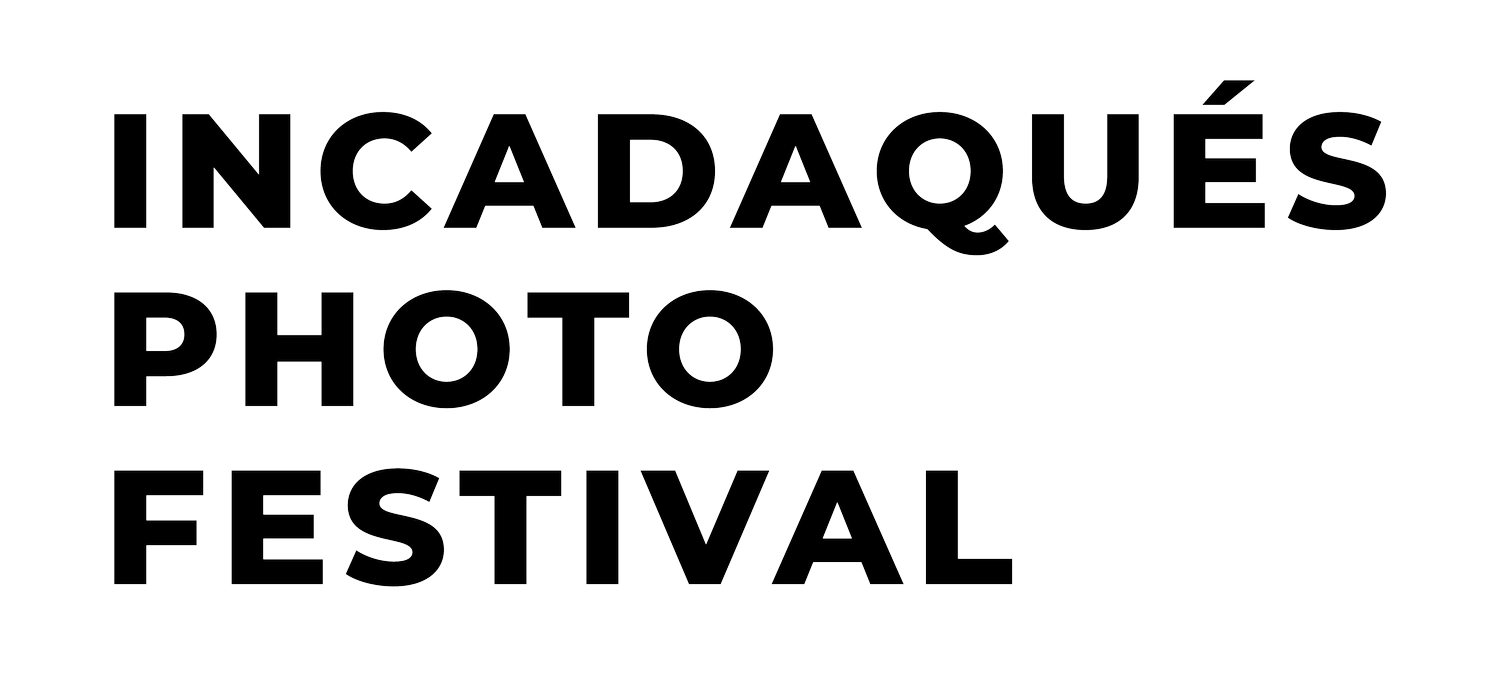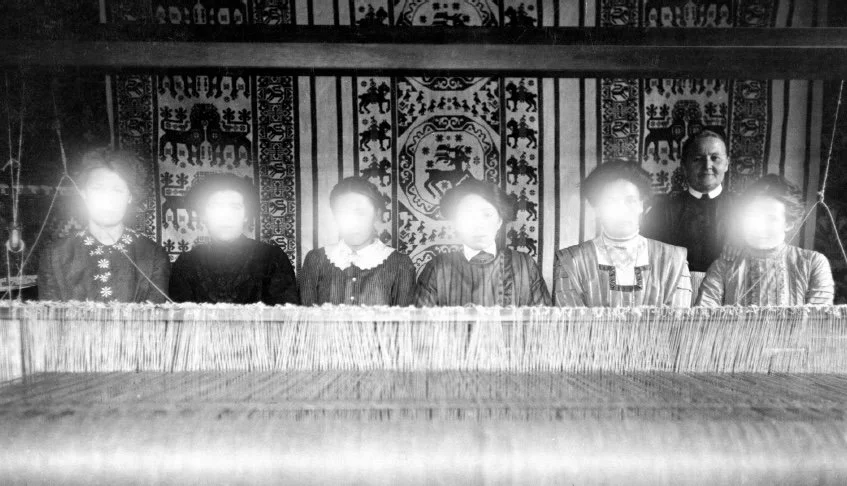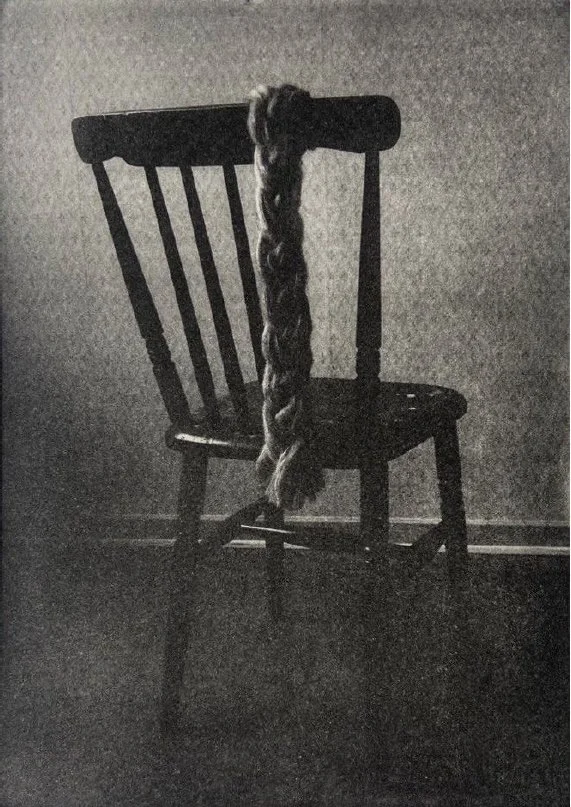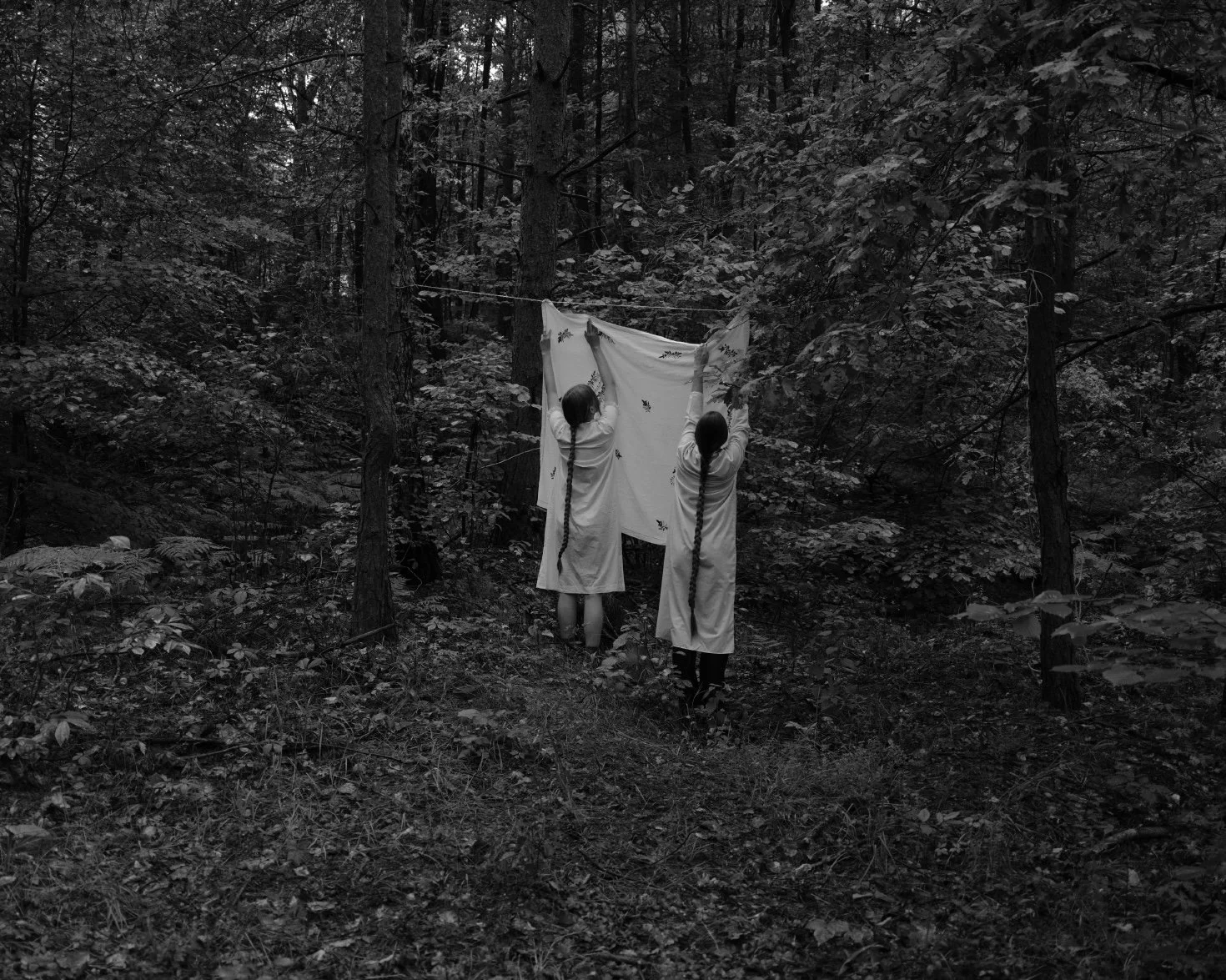Instagram @itsemimartin
Emilia Martin
POLAND
Emilia Martin is a Polish artist and photographer based in The Hague (NL). Graduated from Photography & Society Master’s program at the Royal Academy of the Art (The Hague) in 2022, Martin works from her studio at the Stichting Daisy Chain in the Hague as well as internationally. Her work “I saw a tree bearing stones in the place of apples and pears” was published as a book in 2024 by Yogurt Editions and exhibited internationally in the contexts such as LUMA Arles at the Renconres d'Arles 2024 as the finalist of Dior x Luma Award, Fotofestiwal Łódź 2025, Boutographies Festival in Montpellier 2024, Photo Museum Ireland, 2025, amongst others. She is one of the founders of Radio Echo - a feminist radio collective focused on reverberating diversity of voices.
• SERIES •
Hail Mary, bobbin lace, serpent’s thread
“(...) Although she continued to knit, and sat up-right, it was thus that she felt herself; and this self having shed its attachments was free for the strangest adventures...”
— Virginia Woolf, To the Lighthouse
As a child, I spent countless hours watching my grandmother, a countryside textile worker, her fingers moving in rhythms that blurred the line between the ordinary and the mythical, the practical and the ritual. “Will you put a thread on for me?” she would ask, trusting my young eyes as if they were her own. Yet her work — like much labour deemed domestic and feminine — was unrecognised, and once she passed, her textiles were quickly discarded as worthless.
Hail Mary, bobbin lace, serpent’s thread interweaves her story with that of the Andersson sisters of early 20th-century Sweden. They devoted their lives to creating textiles for their wedding coffins, yet never married; their intricate works remained unused, a haunting record of lives bound by expectations and refusals.
Echoing feminist historian Rozsika Parker’s words — “to know the history of embroidery is to know the history of women” — this work seeks the patterns and stitches linking generations. It insists on weaving these histories anew, refusing their erasure, and reclaiming textile making as both memory and resistance.






